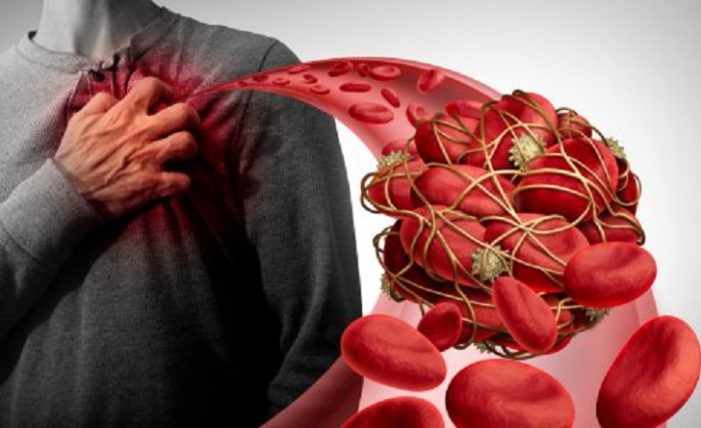CDC Opts for mRNA Biologics Over J&J COVID Vaccine Following Nine Blood Clotting Deaths

Based on concerns over a growing number of reports of a blood clotting disorder known as thrombosis with thrombocytopenia syndrome (TTS) following vaccination with Johnson & Johnson/Janssen’s experimental human adenovirus vectored Ad26.COV2.S vaccine, the Advisory Committee on Immunization Practices (ACIP) voted 15-0 on Dec. 16, 2021 to recommend the experimental messenger RNA (mRNA) COVID-19 biologics developed by Pfizer/BioNTech and Moderna/NIAID over the J&J/Janssen shot.1 2 3
ACIP, an advisory committee of the U.S. Centers for Disease Control and Prevention (CDC), reviewed a study of 54 cases of TTS, also known as vaccine-induced prothrombotic immune thrombocytopenia (VIPIT) or vaccine-induced immune thrombotic thrombocytopenia (VITT), after receiving one dose of Ad26.COV2.S between Mar. 2 and Aug. 31, 2021. The ACIP members concluded that, given the association of the blood clotting with Ad26.COV2.S and its severity, the mRNA shots would be
preferable.1 2 3 4A total of 57 cases of TTS have been confirmed following vaccination with Ad26.COV2.S. Of those people, 36 were admitted to hospital intensive care units (ICUs). All the cases occurred within one month after receiving the vaccine and most of them occurred after nine days of getting the shot. As of Dec. 9, nine deaths (including seven women and two men) have been linked to Ad26.COV2.S.1 3
“I don’t feel comfortable not having the ACIP make a clear statement that reflects the recognition that we have of the concerns about these rare but oftentimes fatal side effects,” said Beth Bell, MD, MPH of the University Washington in Seattle.1
J&J Vaccine Temporarily Halted in April After Blood Clot Reports, Shot Also Linked to Guillain-Barré Syndrome
Worries about J&J’s Ad26.COV2.S and its association with TTS have persisted throughout this year. In April 2021, the U.S. Food and Drug Administration (FDA) and CDC called for a temporary halt in the distribution of Ad26.COV2.S in the United States to examine the reported cases of TTS in six women who received the vaccine. Ten days after the pause, the FDA and CDC issued a statement saying they had conducted a “thorough safety review” of the vaccine and decided it was safe to continue using.5 6 7
In July, the FDA added a warning to the Ad26.COV2.S package label citing an association with a neurological condition known as Guillain-Barré syndrome (GBS) which can cause polio-like paralysis in limbs, including full body paralysis. Federal health officials had identified about 100 cases of GBS following administration of the vaccine, with symptoms developing about two weeks after vaccination.8 9 10
TTS Cases After J&J COVID Shot Can “Rapidly” Cause Death
Within hours after ACIPs vote to recommend the mRNA biologics over Ad26.COV2.S, the CDC backed the recommendation, saying that the”mRNA vaccines are preferred over the [Johnson & Johnson/]Janssen COVID-19 vaccine for the prevention of COVID-19 for those 18 years of age and over.”11 In a press release, the CDC stated:
Today, CDC is endorsing updated recommendations made by the Advisory Committee on Immunization Practices (ACIP) for the prevention of COVID-19, expressing a clinical preference for individuals to receive an mRNA COVID-19 vaccine over Johnson & Johnson’s COVID-19 vaccine. ACIP’s unanimous recommendation followed a robust discussion of the latest evidence on vaccine effectiveness, vaccine safety and rare adverse events, and consideration of the U.S. vaccine supply.12
“We’ve been struck on reviewing these [TTS] cases by how rapidly a patient deteriorates to death. Symptoms always begin within two weeks of getting the vaccine and, on average, within nine days,” said Isaac See, MD of the CDC.11
If you would like to receive an e-mail notice of the most recent articles published in The Vaccine Reaction each week, click here.
Click here to view References:
No comments:
Post a Comment